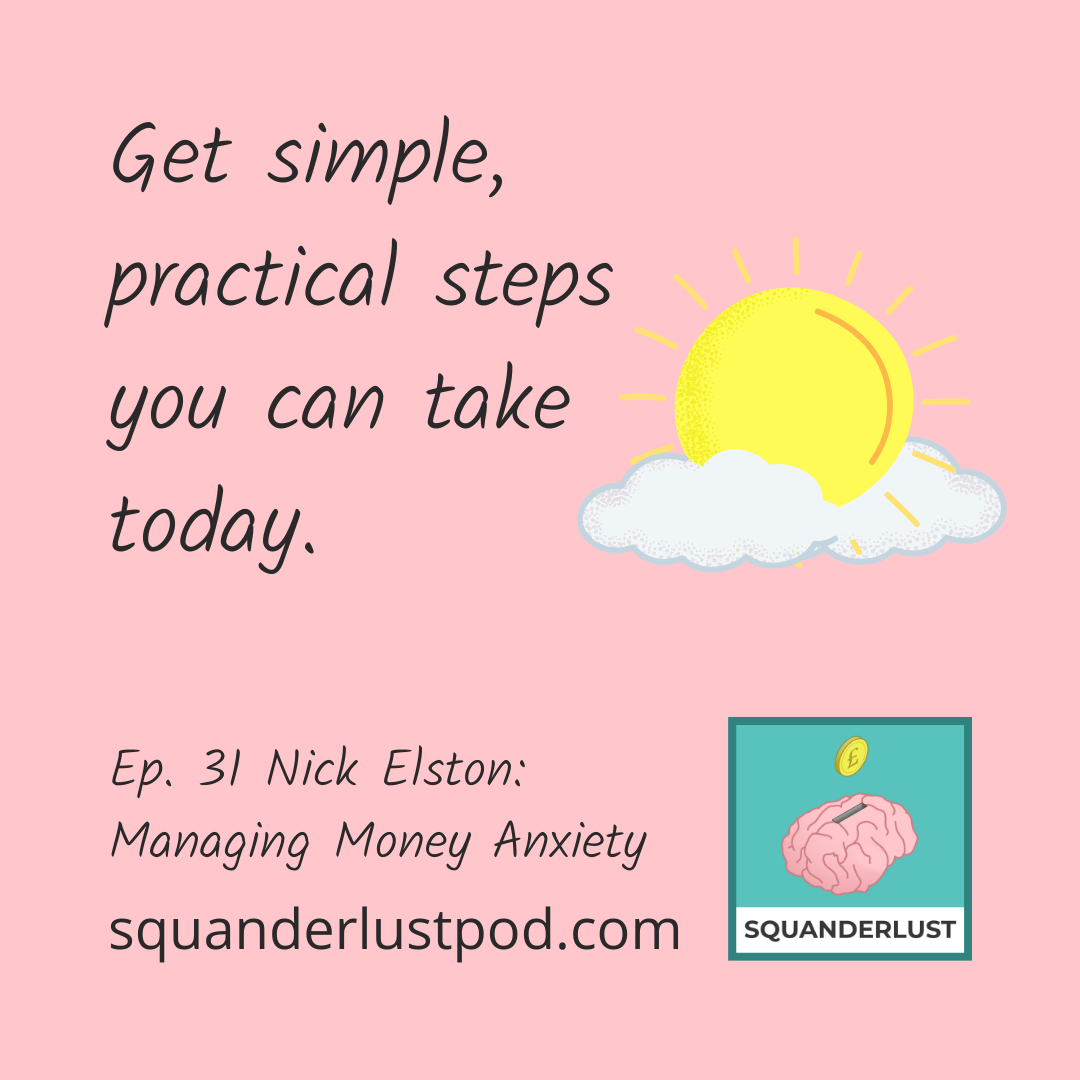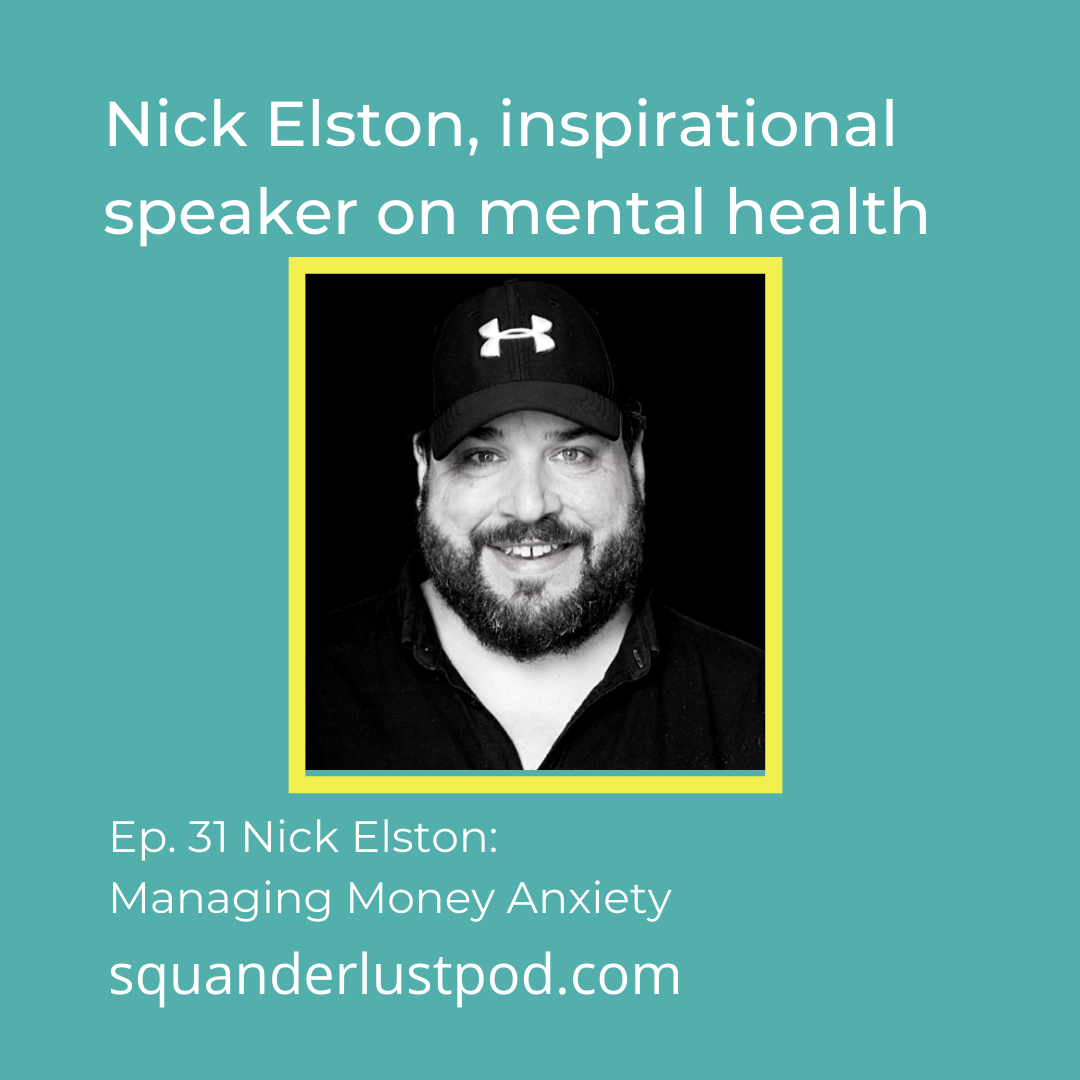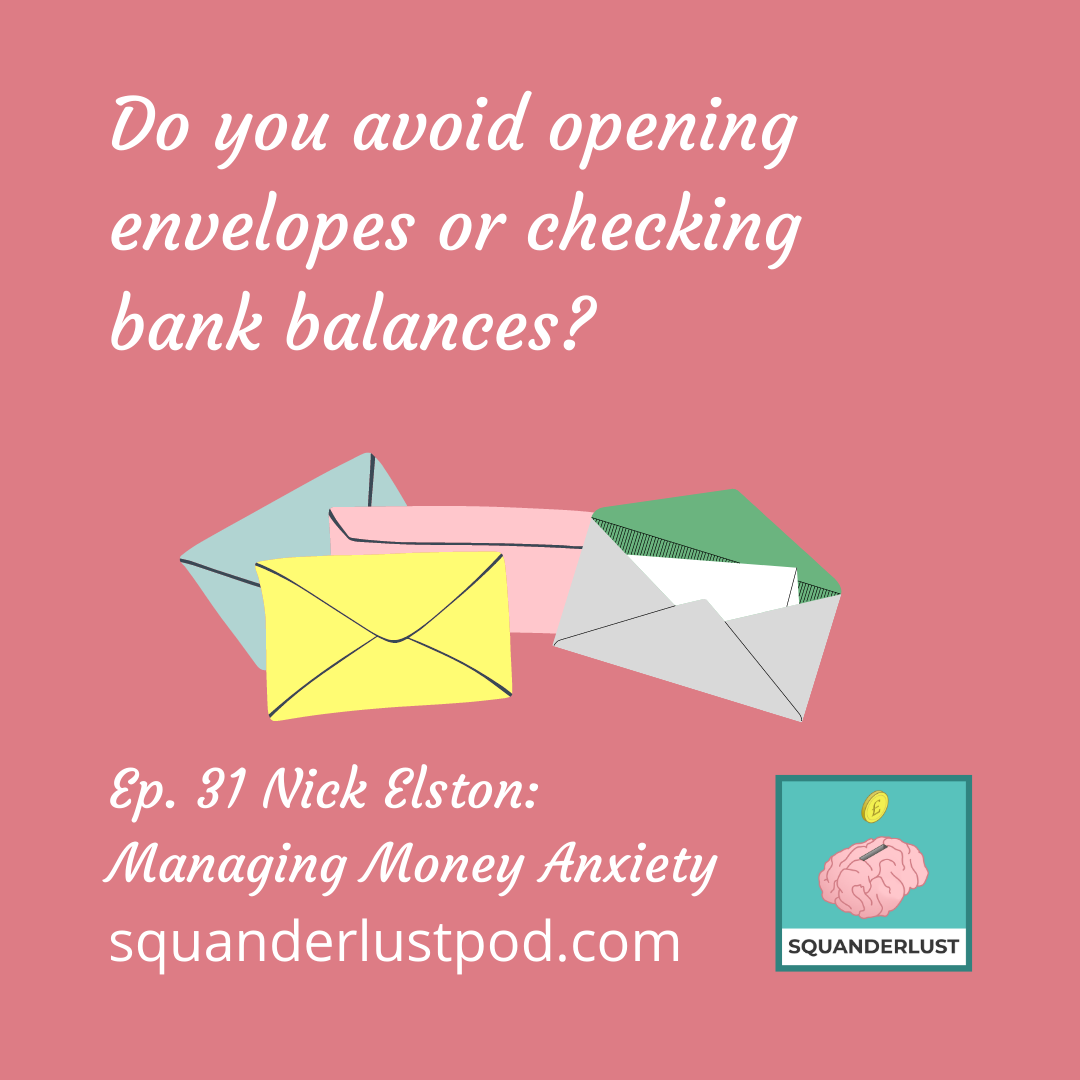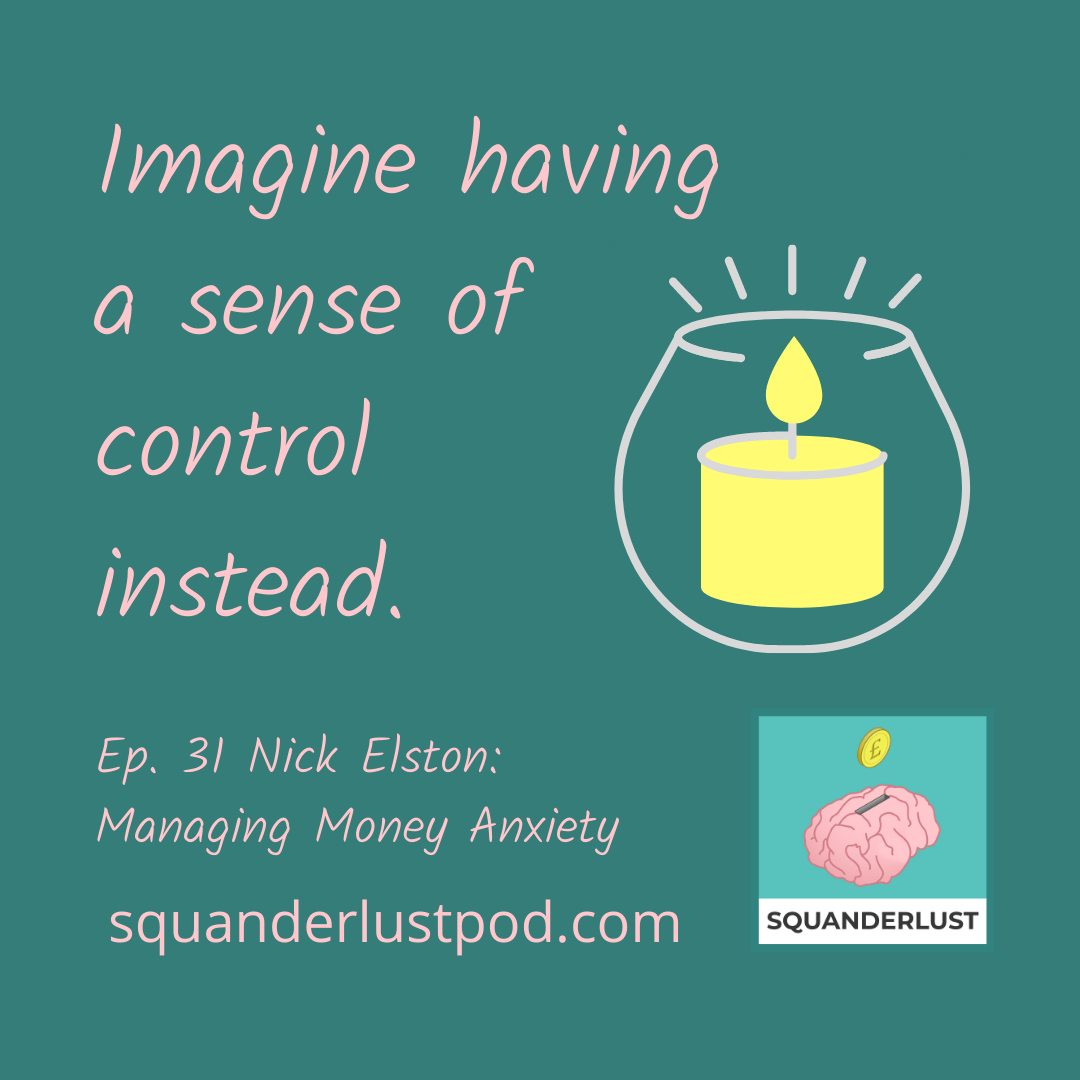You can also listen and subscribe on:
Show notes
Nick Elston is an inspirational speaker, speaking coach, mentor and creator of unique mental health engagement strategies. His work is founded in his lived experience of mental health challenges and he talks candidly about the effect they’ve had on his life and how he has used these experiences to forge a new career helping others.
We discussed simple practical tips and techniques to help listeners who feel anxious when dealing with their finances.
Nick’s advice:
Mental health is like physical health it can be good or not so good and we can treat our mental health “like a muscle” and put in place habits that bring positive benefits for our mental health.
If you feel you’re living for others and hiding yourself, check in on yourself, that’s a sign of rising anxiety.
Ensure there is 30min in your day every day just for you to rest, recharge and recover.
Be aware that when your mental health is in poor shape it’s easy to seek happiness in material objects including using credit to buy those objects. The objects won’t make you happier, and having to repay the credit will add to your stress.
Don’t get annoyed at yourself for feeling anxious about money, it’s not unreasonable to be nervous when dealing with this. We don’t get taught about money when we’re young and the decisions we make can have lasting implications. The key is keeping things in proportion. Don’t get more anxious than the situation requires.
Negotiating can be an especially nerve-wracking time because it’s easy to over-associate your stated price with your self-worth, but remember people will buy your service based on their sense of the value you bring them. Don’t underestimate that value. Nick actually lost a speaking engagement because his price was too low and the buyer assumed he wouldn’t provide a good enough service. (We did a great episode with Jasper Lyons on negotiating salaries, day rates and prices.)
If you go through a tough patch, don’t assume that it will be permanent. Everything changes and troubles are usually temporary. Don’t make hasty decisions, such as dropping standard pricing or accepting a lower salary because of what may well be a short term difficulty.
Some advice for specific situations.
If you’re avoiding checking bank balances, Nick says:
“Don’t bury your head in the sand. Be aware but don’t immerse”. Don’t ignore the issue but also don’t spend all your time checking and checking hoping the numbers will change.
Set a time in the week when you work on your money, and then immediately afterwards schedule something your really love to do to lift your mood.
Remember the truth is almost certainly less bad than you think it will be. What we imagine is often far worse than the truth.
If you’re not opening letters, Nick says:
We need to know, even the bad stuff, we can only deal wiht what[‘s in front of us.
As with checking balances, block out “anxiety time” while you open the envelopes, then do something to bring yourself back up afterwards.
Do things when your energy is high because you’ll be more resilient and less anxious. Pay attention to your energy levels through the day and don’t try to tackle tasks that make you anxious when you’re already depleted.
Remember most envelopes don’t even contain relevant information, they’re often full of marketing and thing you can just throw away.
it’s often not the things that you foresee that get you in life, it’s the things that come out of nowhere. So worrying is pointless, because you’re almost certainly not worrying about the things that will actually cause disruption to your life.
It may be helpful to have someone sit with you while you open the envelopes. Having a coach or mentor do this can be powerful. If you choose a friend or family member to support you, choose wisely, they should also be someone who can challenge you as well as support you.
if you avoid talking on the phone and you need to call a contact centre, Nick says:
Look to see if there’s an online chat or other option instead. If you are in a very difficult place and there is a risk that avoiding phone calls will lead to financial loss or other issues, such as damage to your credit rating, request that your provider communicates with you only in writing.
Grab a cuppa and maybe a snack if it’s going to be a long call.
Don’t assume it’s going to be a negative experience, assume it will be neutral, because you could create negativity from your own defensive behaviour.
Remember the employee you’re speaking to is just another person doing their job and they probably don’t want to be on the call any more than you do. Make a habit of having a more personal, friendly conversation with them , ask how they’re doing or where they are in the world. This fills the awkward silences while computer screens load and makes the call more enjoyable and natural.
Make notes during the call to stop your hands fidgeting and to help you remember details and stay focused.
In general for situations that make you anxious, Nick says:
Use deep breathing, Nick’s preferred method is breathing in for six seconds through the nose, holding for six seconds and breathing out through the mouth for six seconds.
Do things to manage your energy levels using good nutrition, physical activity, meditation, sleep and things that lift your mood such as music and comedy.
Keep your focus on today instead of regretting the past or worrying about the future. Nick recommends “living in day tight compartments” in the words of Dave Pelzer. Make small incremental changes to keep things manageable.
You can connect with Nick on his website nickelston.com, on LinkedIn and listen to his podcast, The Forge Ahead Show on Apple Podcasts, Spotify or all major podcast apps. You can also watch it on Youtube, we recommend the episode where he interviewed Martha!




